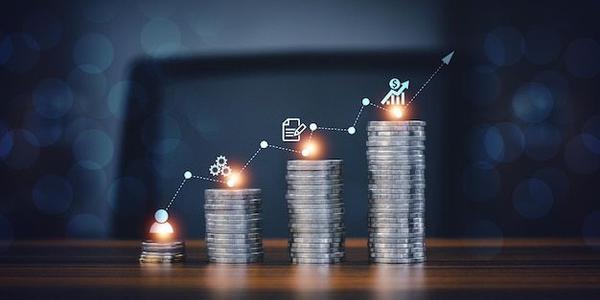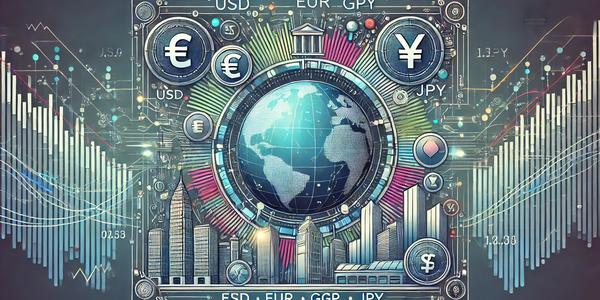Introduction
Hurricanes and other natural disasters remind us that our ambitious human efforts to build financial technologies and new forms of digital money can easily be rendered futile. Paying for Uber rides with a contactless card, trading Bitcoin, and using Venmo and Cash App to make purchases can often be a mechanical, effortless exercise. In a disaster zone, however, all of this is vanity. Surviving natural disasters requires citizens to spend money on food, water, and other basic necessities — and doing that without cash on hand is an unexpected and impossible dilemma.
The Impact of Natural Disasters on Financial Systems
Natural disasters not only cause widespread destruction and trauma, they drive local economies to a dead halt. Based on survey evidence, Pew Research Center concluded that seven in 10 Americans (72%) reported at least one personal experience with extreme weather in 2024. The Federal Emergency Management Agency (FEMA) also reported that 81 major disaster declarations have already been made in 2024 so far, which is double the number that was recorded two years ago.
A Recent Disaster: Hurricane Helene
A recent disaster — Hurricane Helene — made landfall and flooded remote parts of the Appalachian Mountains, causing ‘biblical devastation’ and record-breaking levels of death and destruction not seen in the region since the historic flood of 1916. The catastrophic aftermath of the Category 4 behemoth left millions of Americans without internet, cell phone service, and electricity, mocking the ubiquitous availability of traditional financial payment rails and fintech digital infrastructures — which all went dark in an instant.
The Limitations of Digital Payment Systems
Cell phones could not be used to send money to relatives. Computers could not be used to make purchases. No digital device could be charged in electrical outlets. Banks with FedNow instant payment services were closed or flooded. The regional target of Hurricane Helene’s gravest impact — Appalachia — is significant: households in this rural region have fragmented access to broadband services compared to households nationally, which thereby hinders their access to online financial and banking services, especially during severe weather.
The Importance of Cash in Disaster Zones
Under these circumstances, only one option to transact payments exists — cash. As disaster relief organizations explain, cash offers the most flexibility to address urgent needs, and the influx of cash — largely through charitable donations — injects money back into local economies, helping local businesses and communities recover.
The Financial Impact of Hurricanes and Other Natural Disasters
The financial impact of hurricanes and other natural disasters should be taken just as seriously as the emotional and physical. Experience is the best teacher, and Hurricane Helene has delivered three blunt lessons for every American to consider.
Lesson 1: Preserve the Future of Cash
Physical cash should never be phased out — a notion contrary to what experts believe will happen to the future of money given the rise in digital payments and popularity of digital currencies. Yet, citizens would be wise to keep some cash savings on hand, while local ATMs should be fully stocked and functional to keep cash dispersions fluid.
Lesson 2: Fix Outdated Internet Capabilities
Local governments and public service organizations should invest in innovations like Starlink, which provides internet from space through a network of satellites in orbit around the Earth. Moving internet infrastructure into space reduces the threat of damage caused by catastrophic storms trudging through the troposphere, which often disables the functionality of cable networks, wires, and fiber optic cables.
Lesson 3: Support Meaningful Financial Literacy
It’s time to position individuals to achieve financial sophistication, so that when disaster strikes, they are prepared. This means investing in meaningful financial literacy programs that go beyond just teaching people how to use digital payment systems.
Conclusion
The lessons from Hurricane Helene should not be ignored: it’s time to upgrade internet infrastructure, position individuals to achieve financial sophistication, and remember that when disaster strikes, cash is still king.
Agnes Gambill West
Agnes Gambill West is a guest columnist for Cointelegraph, an associate professor at Appalachian State University and an attorney startup advisor. She serves on the Business and Consumer Payments Advisory Council for the Federal Reserve Bank of Richmond, is an advisor to the North Carolina Blockchain Initiative, and was appointed by the lieutenant governor of North Carolina as the vice chair of the North Carolina Innovation Council. She was previously a proprietary trader on Wall Street, the co-founder of an Ethereum-based blockchain company, and a visiting senior research fellow at the Mercatus Center.
Note
This article is for general information purposes and is not intended to be and should not be taken as legal or investment advice. The views, thoughts, and opinions expressed here are the author’s alone and do not necessarily reflect or represent the views and opinions of Cointelegraph.
Subscribe to the Markets Outlook newsletter
Get critical insights to spot investment opportunities, mitigate risks, and refine your trading strategies. Delivered every Monday
By subscribing, you agree to ourTerms of Services and Privacy Policy



